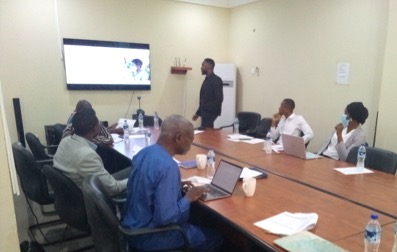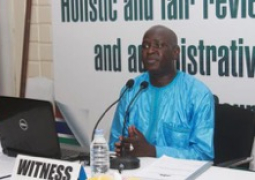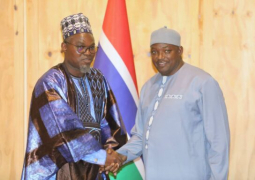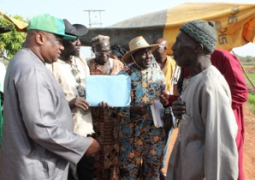
“Essentially, social protection falls within that mandate of the National Human Rights Commission (NHRC). We believe that this emergency-oriented approach (to only respond to social protection rights when there is an emergency or disaster) needs to change. We need policies and laws to actually address issues of social protection at that level,” Mr Gassama said on Wednesday at a validation meeting on the report of the Study of Social Protection in The Gambia.
The NHRC with support from the Danish Institute for Human Rights and the Network of African National Human Rights Institutions, commissioned a study on social protection in The Gambia with a focus on interventions such as BReST and NAFA Quick.
The right to social security is recognised under the Universal Declaration of Human Rights, the International Covenant on Economic, Social and Cultural Rights, and it is considered a foundation on which the enjoyment of other rights is built.
The Gambia’s legal and policy framework for social security was designed to contribute towards the alleviation of poverty and vulnerability in the country.
However, widespread poverty and multidimensional vulnerability in The Gambia has exposed the population to economic and health shocks during global pandemics and economic depressions.
“Quite often as a nation, the approach to social protection has always been on an emergency basis. It is only when issues happen, emergency or disaster we respond. We think this is when to show essential protection to vulnerable groups in our society,” Mr Gassama stressed.
He added that the study, which is in line with the Commission’s mandate, needs a coordinated approach to ensure that no one is left behind.
He pointed out that the key objective of the study was to review, collect and analyse data on social protection interventions.
“The study is also in line with the AU Agenda 2063, which seeks to address the legal and policy framework on social protection in The Gambia, with a view to addressing gaps and making recommendations.”
According to him, the study also seeks to analyse income interventions for the extremely poor and vulnerable individuals and households in The Gambia during covid-19 pandemic and other monetary interventions from the state and development partners.
For her part, Maria Ploug, representative of the Danish Institute for Human Rights, noted that the right to social protection is a human right which is firmly established in international law.
“It is also critical to realise that in the 2030 and 2063 agenda in Africa, The Gambia ratified several human rights instruments which entrench the right to social protection, including the international covenant on economic, social and cultural rights at the African Charter,” she said.
According to her, social protection is intended to include protection from a lack of work-related income caused by sickness, disability, maturity, unemployment, old-age, death of a family member and also unaffordable access to health care or insufficient family support.
The human rights representative stated: “A state has a duty to use a maximum available resource to realise this right and an immediate duty to ensure access to social security schemes that provide a minimum essential level of benefits to all. To enable an individual or families to acquire the least essential health care, basic shelter, housing, water and sanitation, food stuff and the most basic forms of education.”





